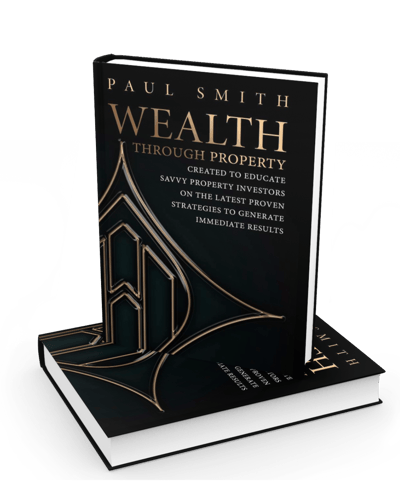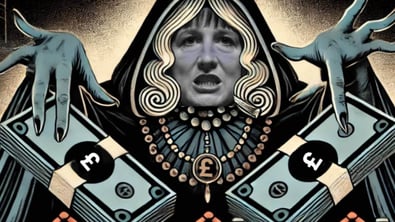Tenants’ rental payments are to rise as landlords are unable to absorb higher mortgage costs, a report has found.
The National Residential Landlords Association (NRLA) said the recent rise in interest rates and further increases are expected.
While the rates will provide some savers with a modest rise in returns, households with a variable rate mortgage now face higher mortgage interest payments and lenders confirming they will pass the rate rise in full onto variable home loan customers which could lead to higher rates.
What is the impact of rising interest rates on rent? This blog post explains.
What is an interest rate?
The interest is the price paid to borrow money. When a lender provides a loan, they make a profit off the interest paid on top of the original loan amount.
Interest rates contribute to the ‘true value’ of credit purchases, such as homes and cars.
The interest rate is the amount charged for borrowing money, which is shown as a percentage of the total amount of the loan. The higher the percentage, the more the borrower has to be paid back for a loan of a given size.
For savers, the savings rate, the more will be paid into an account for a given sized deposit.
A small change in the interest rate can have a big impact. It is therefore important to monitor whether interest rates rise, fall or stay the same.
What is the Bank Rate?
The Bank Rate is the key interest rate in the UK.
This rate influences many other interest rates in the economy. This includes savings rates offered by high street banks and building societies.
How has the Bank Rate changed over time?
This interest rate has varied over time. Prior to the financial crash in 2008, rates were at 5.75%. For over ten years, rates were below 1%, including a record low 0.1% during 2020-21.
More recently, the Bank Rate has increased. They are currently at 2.25% but have been predicted to rise further.
What is the link between interest rates and mortgage rates?
If interest rates rise, borrowing could become more expensive. This impacts things like buying a new house (and mortgage) or a new car on credit, it is essential to account for the impact of higher costs.
Thus, if the homeowner has a £130,000 mortgage to be paid over 25 years. If the interest rate is 2.5%, the monthly repayment will be £583.
However, if the rate is 1% higher, the monthly repayment will be £651.
If the mortgage rate was 1% lower, the monthly repayment would be around £520.
What is the current situation with interest rates?
The Bank of England said it “will not hesitate to raise the Bank Rate to steady the pound and bring inflation under control”.
The BoE chief economist, Huw Pill, has suggested there be another significant rise when the Monetary Policy Committee – the group that sets the rate – meet in early November.
Sterling fell to a record low against the dollar in the aftermath of the Government’s mini-budget. This led to further inflation as exports became more expensive to bring to the UK.
The Bank Rate is currently 2.25%, but it could go up by another two percentage points by the end of 2022. The rate could top 6% next year, according to market predictions.
What does the rising rates mean for landlords?
These circumstances mean that people with variable rate mortgages, including landlords, will face higher monthly repayments.
Landlords with fixed rate mortgages will be protected for a period when they remortgage, they are likely to be confronted with more expensive repayments.
How do rising interest rates effect tenants?
“Landlords at the end of their fixed rate mortgage term will have issues refinancing. Instantly, their outgoings have increased… which might be passed on to the tenant.”
He said buy-to-let mortgages are typically higher than standard mortgages, therefore landlords would often expect to be paying a higher rate.”
Chris Norris, policy director for the National Residential Landlords Association, said in some cases “the cost of servicing a single buy-to-let mortgage will increase by hundreds of pounds per year.
“Over the last 12 months private rents across the UK have gone up by 3.4%, according to the ONS (Office for National Statistics). This shows that most landlords are absorbing rising costs where they can and keeping rent increases below inflation.
“However, there is a limit to landlords’ ability to bear increasing costs. Especially rapidly rising mortgage rates.
“Ever since the Government removed landlords’ ability to offset their legitimate finance costs against income, landlords with mortgages and their tenants have been exposed to the risk of increasing interest rates. The recent, and expected future, rate hikes are likely to leave landlords with little choice but to pass on at least some of the costs.”
David Votta, president or ARLA Propertymark, said:
“It’s important to remember that a large proportion of private landlords are retired, and the majority take home a gross profit of £20,000 or less a year and rely on rent as an income, meaning they are also hit with the same financial hurdles as everyone else. Consequently, as landlords are persistently hit with interest rates rises, legislative and tax changes and with other financial obligations growing, incentives are non-existent, pushing many to withdraw their homes from the sector which in turn plays a factor to rising rents.”
What will happen with demand for rental accommodation as a result of rising interest rates?
Demand for rental property over the last few years has been underpinned by the lack of mortgage affordability. This could mean there is more demand for rental property, not less.
What are the opportunities for international investors?
The UK exchange rate makes the UK an enticing investment opportunity for overseas landlords.
Sarah Coles, senior personal finance analyst at Hargreaves Lansdown has said buying in the UK has become “more affordable”.
“It’s something we saw among expat investors after falls in the pound in the wake of the Brexit vote. This could help boost the miserably low levels of rental property, which could ease some of the rent rise in certain areas.”
What are the other opportunities for property investors?
As the amount of disposable income in people’s pockets change, so do buying habits.
There may be a shift from international holidays to UK serviced accommodation.
What are the next steps?
Access your free Wealth Through Property e-book to start your property journey here.
For more information call us on 01302 897131 or email office@touchstoneeducation.co.uk.












